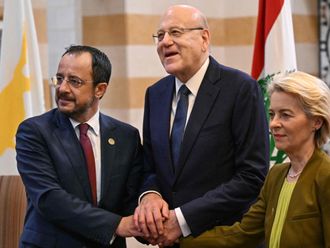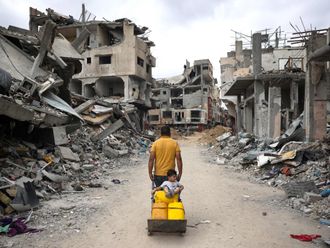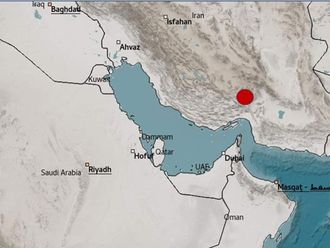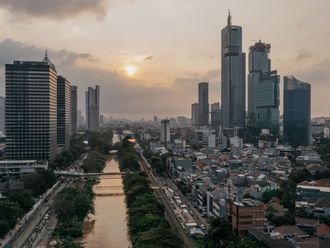Baghdad: A crucial parliament session kickstarting the government formation process was delayed and an Iraqi general was killed on Monday as solutions to the country’s worst crisis in years appeared increasingly distant.
The developments highlighted bickering among political leaders despite calls for unity to see off an offensive by militants that has overrun swathes of territory and which the security forces have struggled to repel.
The swift advance has displaced hundreds of thousands, alarmed the international community and heaped pressure on incumbent Prime Minister Nouri Al Maliki as he bids for a third term in office.
But the government formation process, which international leaders and top clerics have urged be expedited, was dealt a blow when a parliament session scheduled for Tuesday was postponed due to persistent disunity.
Multiple officials and a lawmaker, all speaking on condition of anonymity, said the meeting had been rescheduled for August 12 because MPs could not agree on a new speaker.
More than two months after elections in which Al Maliki’s camp won the most seats, though not a majority, parliament has yet to begin the process of choosing the country’s top three positions, which according to an unofficial deal are split between the Shiite Arab, Sunni Arab and Kurdish communities.
A session last week ended in chaos, with MPs trading heckles and threats before some of them eventually walked out, forcing an adjournment, with the UN’s special envoy warning that further delays risked plunging the country into “Syria-like chaos”.
Despite telling AFP in a 2011 interview he would not seek a third term, Al Maliki vowed last week he would not bow to mounting international and domestic pressure to step aside and allow a broader consensus.
Iraqi forces have largely regrouped after the debacle that saw soldiers abandon their positions and, in some cases, even weapons and uniforms as militants led by the Islamic State of Iraq and the Levant (Isil) group conquered second city Mosul and advanced to within about 80km of Baghdad.
But while Iraq has received equipment, intelligence and ground help from the United States, Russia, Iran and even Shiite militias it once shunned, languishing government efforts to push back the insurgents were dealt a blow by the killing of a senior general on Monday.
Major General Najm Abdullah Al Sudani, the commander of the army’s 6th division, “was killed by hostile shelling in Ebrahim Bin Ali,” Lieutenant General Qasim Atta told AFP by text message.
Ebrahim Bin Ali is in the Abu Ghraib area, just west of Baghdad, near where security forces have been locked in a months-long standoff with militants who have seized control of the city of Fallujah.
Security forces have for more than a week also attempted to wrest back the Sunni stronghold of Tikrit from a loose alliance of Isil fighters, other militant groups and former Saddam Hussain loyalists but have so far failed to achieve a breakthrough.
Iraqi forces have been hamstrung by a lack of combat experience and dearth of intelligence in Sunni areas, due largely to distrust of the Shiite-led authorities among minority Sunni Arabs, analysts say.
“The army and the police are seen as sectarian... and therefore the Sunni community doesn’t provide support or, crucially, intelligence to the security forces,” said John Drake of the AKE Group security company.
“If you don’t have good intelligence on the ground, your strikes are not precise, they involve collateral damage and casualties ... making everything worse.”
While most observers have argued Baghdad was not about to fall, violence and suicide bombings have continued.
The latest struck a cafe in a predominantly Shiite neighbourhood in western Baghdad Sunday, killing at least four people and wounding 12, officials said.
An Isil-linked Twitter account posted on Monday a picture purported to be of the suicide bomber, apparently a Lebanese national, posing in front of the black flag of the insurgents before his operation, holding a sword and surrounded by assault rifles and rocket launchers.
The authenticity of the image could not immediately be verified.
And while government forces were still looking for a major victory, Isil jihadists appeared to be brimming with confidence.
A few days after declaring the establishment of a “caliphate”, the group’s leader Abu Bakr Al Baghdadi stepped out of the shadows to deliver a Friday sermon in Mosul’s largest mosque.
Analysts have described the sudden public appearance by the self-proclaimed “caliph” — second only to Al Qaida chief Ayman Al Zawahiri on the US most wanted list — as a daring stunt reinforcing Al Baghdadi’s status as the new strongman in the world of global jihad.










_resources1_16a3106a819_small.jpg)

